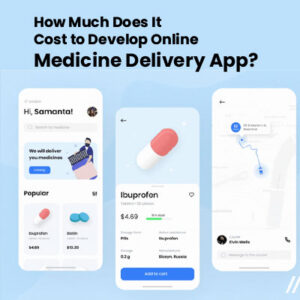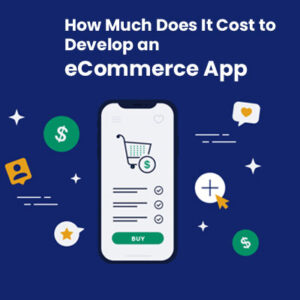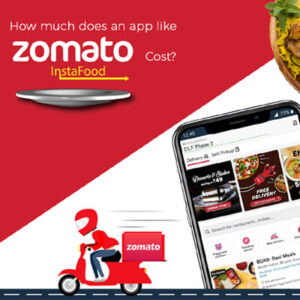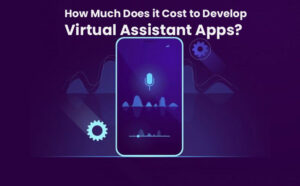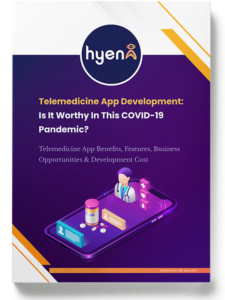How to Choose the Right Mobile App Platform for Your Business in Dubai?
How to Choose the Right Mobile App Platform for Your Business in Dubai?
In today’s fast-paced digital world, mobile apps are essential for businesses to interact with customers, increase engagement, and drive growth. As a thriving hub of commerce and innovation, Dubai provides a distinct and competitive market in which businesses must stay ahead by employing the current mobile app platforms.
With so many platforms available, it can be difficult to choose the best one for your business, especially with the quick changes in technology and consumer preferences. Whether you are targeting local customers or a global audience, the platform you choose will impact your app’s performance, reach, and development expenses.
This article will walk you through the key criteria to consider when selecting the best mobile app platform for your business in Dubai in 2025. From analyzing the local market to assessing your company’s needs and future trends, this guide will give you a clear path to making an informed decision.
Key Factors To Choose Before Choosing a Mobile App Platform
Choosing a proper mobile app development platform is mainly based on various considerations. Every App Development Platform will have its list of advantages and disadvantages. Knowing this will guide you in making the best choice for creating an app and determining the success of an app after its release.
- Popularity of the Platform
In Dubai, the two most widely used operating systems are Android and iOS. iOS users are typically wealthier than Android users, who are more likely to be middle-class and foreigners. Thus, you want to base your decision on the group that most closely resembles your intended market. Mobile app development for multiple platforms may be essential if you want to reach a wider audience, even if it means spending more money.
- Budget Restraints
One of the most important aspects of developing an app is the budget. It is costly to develop two separate native apps, one on iOS and other on Android operating systems. But cross-platform solutions, such as React Native or Flutter, allow you to create a single software that runs on both platforms. So, they are a more affordable option if the budget is a constraint.
- Planning and Ongoing Maintenance
The difference between platforms will define how your app is developed and, hence, its maintenance from the day they launched into the stores. Native applications have to be developed for iOS and Android operating systems, but they tend to run faster and offer a better user experience. However, cross-platform mobile applications will provide better management of applications on different platforms by updating a single code base. But as you do platform-specific upgrades or launch features, there would be some limitations.
- Scalability and integration
The development platform that you choose must be able to integrate and communicate with other business apps, such as CRMs or payment gateways. Make sure that the platform you’re choosing can hook into existing systems. Some offer more connection options than others. Think about the scalability of your app. If you imagine adding new features or taking your business to scale, make sure that the platform you’re choosing can scale with it.
- Security and compliance
Maintaining the security of your app is critical, especially considering the growing concerns about data privacy and cybersecurity threats in Dubai. The UAE has strict data privacy legislation, and disobeying can result in hefty fines. So, be sure that the platform you choose meets these criteria. The development of native apps or cross-platform apps has to maintain the security standards so as to meet compliance as well as ensure maximum security level from hackers.
Comparing Popular Mobile App Platforms
When selecting the best platform for your company, it’s essential to understand the fundamental differences between various mobile app platforms. The most popular platforms are listed here, along with their benefits and drawbacks.
Native Apps (iOS and Android)
- Advantages with Native app development
Developed exclusively for iOS or Android, native apps provide excellent performance and access to platform-specific functionality. For instance, iOS mobile apps can easily be launched into Apple’s ecosystem, which includes iCloud, Apple Pay, and Siri whereas Android apps need customization and access to Google services.
- Cons with Native mobile app development
Developing native apps is expensive and time-consuming because you must create two separate versions for iOS and Android. It may increase the development expenses and complexity, particularly if the app requires on-going updates and maintenance.
Overall, Native mobile apps are best if your company demands high performance, a great user experience, or interaction with platform-specific capabilities. It is especially useful in businesses that require high app performance, such as gambling, finance, and retail.
Cross-platform Apps
- Advantages of cross-platform apps development.
Cross-platform development means developing one code base that runs flawlessly across both iOS and Android operating systems. The cost and time required for development is reduced because it requires maintenance of only one code base for two applications. For this reason, more and more tools like Flutter and React Native are getting popularity-to deliver the near-native performance within relatively short cycles of development.
- Drawbacks with Cross-platform App Development
Although cross-platform programs are less expensive, they may not provide the same degree of performance as native apps. They limit the access to certain features and could not provide a fully optimum user experience across both platforms.
Cross-platform apps are ideal for organizations, if they want to publish app rapidly on both platforms. They are suitable for SMEs, businesses, and startups that don’t rely on platform-specific features.
How Much Does It Cost to Develop Native and cross-platform mobile Apps?
The choice between a native and cross-platform approach affects how much it costs to develop a mobile app.
The Cost Of Native App Development (for iOS and Android)
Basic native apps might cost anything between $30,000 and $100,000 per platform. For more complex apps with advanced features, the cost can reach $150,000 or more per platform. Native programs often provide greater speed and user experience, but require twice the effort.
The Cost Of Cross-Platform Development
Cross-platform development is budget-friendly because the same codebase can be used for both iOS and Android. The average cost of a basic app development typically ranges from $25,000 to $70,000, whereas complex cross-platform projects can cost $100,000 to $120,000.
Conclusion
The choice of the best mobile app development platform determines your company’s long-term goals in Dubai. Therefore, it is imperative that the decision you make satisfies the demand of your target market, budget, and business objectives.
Whether it is a budget-friendly cross-platform or high-performance native app, Hyena specializes in mobile applications tailored to your business objectives, market demand, and the budget you have set for us. Let’s help your dream of presenting an app that would cater to the needs of your audience and setting up your business for long-term success.

